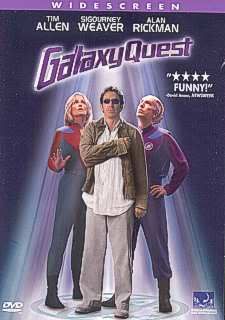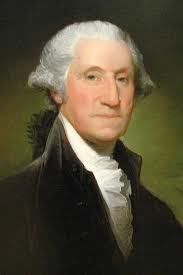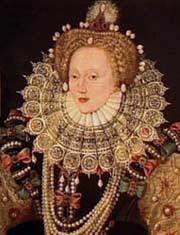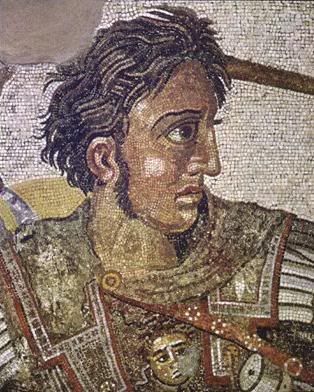I found this interview I did a few years ago, and thought it had some good information on writing historical romance, as well as one of my favorite questions about who to invite to dinner. Hope you find it interesting.
1. Colorado Silver, Colorado Gold is your second historical romance. Would you tell us a little about the book?

The book is set in Durango, Colorado. I created this story around the setting. When I was a child we lived in California, but every summer drove back to Illinois to visit the grandparents. I remember how beautiful Durango was, so I wanted to set a historical here. I got a book of Durango history, and used what I found for the background for the story, the mining, the smelters, etc. 2. Both the hero and heroine are hiding secrets .What problems did you run into maintaining this tension and how did you deal with them?
The fact that they are hiding secrets is what keeps them from going right into a relationship. The reader is privy to Wes’ work for Wells Fargo and why he’s in Durango right up front, so there was no real problem in writing Wes. I had to be a little more circumspect with Julie, as the reader knows she concealing something, but not exactly what she’s concealing. The hard part for writing Julie is not to reveal too much when in her point of view or internal thoughts. Just enough to keep the reader wondering, but not enough to give the secret away until the proper time. This creates a push-pull in their feelings, as they are attracted to each other, but don’t feel they can do anything about the attraction.
3. Both your first book, Kentucky Green, and Colorado Silver, Colorado Gold are set on the American frontier. What in your opinion is the hardest part of writing stories in this setting? What is the easiest?
Well, since I a BA and MA in History and taught I was familiar with the history so once I decided where and what type of story I wanted to write, I had a general idea to start. Doing the detailed research is easy and fun for me. For Kentucky Green I did research on Kentucky long rifles,  Conestoga wagons, their average speed, how far it was from one little town in Pennsylvania to another. You can find really great thing, such as a WPA travel guide to Pennsylvania that listed all the little towns, when they were founded, if they’ve changed names, what they might be famous for, etc. And I used this as a guide for the wagon train trip.
Conestoga wagons, their average speed, how far it was from one little town in Pennsylvania to another. You can find really great thing, such as a WPA travel guide to Pennsylvania that listed all the little towns, when they were founded, if they’ve changed names, what they might be famous for, etc. And I used this as a guide for the wagon train trip.
 Conestoga wagons, their average speed, how far it was from one little town in Pennsylvania to another. You can find really great thing, such as a WPA travel guide to Pennsylvania that listed all the little towns, when they were founded, if they’ve changed names, what they might be famous for, etc. And I used this as a guide for the wagon train trip.
Conestoga wagons, their average speed, how far it was from one little town in Pennsylvania to another. You can find really great thing, such as a WPA travel guide to Pennsylvania that listed all the little towns, when they were founded, if they’ve changed names, what they might be famous for, etc. And I used this as a guide for the wagon train trip.For Colorado Silver, Colorado Gold, I learned about mining and smelting in Colorado, the history of Wells Fargo, etc. The hard part of this is to stop doing the research and start writing. And while I like research, my formal training didn’t cover what clothing people wore, so I had to do a lot of research on who would be wearing what, when.
One problem I have is conveying the social conventions of the time I’m writing in without over explaining (author reader-feeder). For instance in Kentucky Green, it takes a while for the hero and heroine to even think of each other by their first name before actually addressing each other that way. That was the convention of the time, where even married people addressed each other as Mr. and Mrs. in public. Another problem is writing in a time period where S*E*X* (as Erma Bombeck used to write) wasn’t quite so prevalent. Today there is S*E*X everywhere you look. So it had to balance the actual conduct of the time with today market that wants things hot, hot, hot.
4. You're ready to begin a new project. What's the first thing you do? Research? Character bios? Plot and plan? Or just jump in and let the muse take you?
The staring place can be the setting, or just the idea of a hero or a heroine, or a plot line such as a marriage of convenience. Then you noodle around with the characters (how are they wrong for each other, how will they be right for each other) and the plot, until I have a vague outline. Then I’m fortunate enough to belong to a critique group, that over the fifteen plus years we’ve been together we’ve become a plotting group. We have an annual retreat where we each bring an idea and do the brainstorming to flesh out the characters and the plot line.
Then I write a narrative outline of the story with all the important points before I actually start writing. I sometimes do a first person bio, but not always. I know some writers feel that plotting takes away the mystery of the story, but I like to have a road map, but with my general outline, all the details somehow revel themselves as I write the story.
For example, in one of my ms. I wrote in the outline ‘Johnny finds out where the fence cutter will strike’ but had no idea how he would find out, but as I wrote the story, it figured itself out. Too weird, huh? 5. What advice can you offer to writers who are working toward publication?
Have friends who are also writers – no one else understand except other writers what we worry about, or understand and support us. My husband loves me, but he just doesn’t get ‘writing’. 

And you have to keep thinking of the line from Galaxy Quest – “Never give up, never surrender!”
6. And lastly, if you could invite three people to dinner (real, fictional, living or dead), who would they be? What would you serve and why and what would you want to discuss over coffee?
Wow! What a choice. Did you ever watch the old PBS series Meeting of the Minds where Steve Allen had historical figures to dinner and a discussion?
After a lot of thought (too many possibilities!) I think I’ll have dinner with George Washington, Elizabeth I and Alexander the Great. These are personalities who fascinated me while  studying/teaching history. I think it would be interesting to find the real person behind the historical persona they’ve become. All of them seem to be bigger than life characters but from my studies I think they all were in essence really very private people who only allowed a few real friends to really know the people they were.
studying/teaching history. I think it would be interesting to find the real person behind the historical persona they’ve become. All of them seem to be bigger than life characters but from my studies I think they all were in essence really very private people who only allowed a few real friends to really know the people they were.
 studying/teaching history. I think it would be interesting to find the real person behind the historical persona they’ve become. All of them seem to be bigger than life characters but from my studies I think they all were in essence really very private people who only allowed a few real friends to really know the people they were.
studying/teaching history. I think it would be interesting to find the real person behind the historical persona they’ve become. All of them seem to be bigger than life characters but from my studies I think they all were in essence really very private people who only allowed a few real friends to really know the people they were.And it, it just occurred to me, none of them left a direct descendent. What to serve would be a real problem since George, Elizabeth and Alexander come from such different times. So I think I’d go with a simple menu, roast turkey and new world vegetables such as corn and tomatoes, some bread, then round it out with fruit (apples, pears, grapes) and nuts along with a couple of types of cheese, one or two types of wine, and of course coffee and tea. 

Discussion is easy as we would discuss leadership and the responsibility there of. George was a natural leader, who was willing to step up and take on the role and responsibility.
Elizabeth had to keep her head (literally) on her way to becoming queen. And then as a woman in a man’s job, learn to lead men without making them resent it.
Alexander must have been some sort of super charismatic man to get his troops to follow him to the ends of the earth. 

These three were also in a sense the first/originator of their role – President, a reigning Queen, a conqueror.
If you got to invite three people from history for dinner - who would it be?
4 comments:
I'd invite Lord Byron, Jane Austen and the Apostle Paul. The menu would be baked fish, salad, potatoes, followed by fruit, nuts and something like a chocolate mousse, with wine and coffee. none of them would eve have had such chocolate or coffee.
I am not to certain that the three of them would get along. Any two could get up a conversation. However, I would want to monopolize each in turn to ask those questions. Maybe I'd ask Emily Dickinson to join us.
When she was in high school, my sister had a history exam in which she was to have a group of historical figures to dinner and imagine their discussion. One of the people was Cro Magnon man. My sister put him at a table by himself because his table manners were so disgusting.
My choices would be Winston Churchhill and like Regency Researcher, Jane Austen. They ought to get along just fine though Jane had a thing aginst the 'colonists.' Maybe Laura Ingalls Wilder, who was my favorite author as a child and if she couldn't get along with Winnie and Jane, Robert E Lee who was always a gentleman.
Or if those guests failed to RSVP, I'd have Abraham Linclon and Jesus.
Baked Chicken,souffled potatoes and salad is always good and if Jesus was to attend, unlevened bread since next weeks is Passover. Redrobrr@aol.com Tucson, AZ
Interesting- I remember that program with Steve Allen. I love it. I would probably invite Elizabeth I as well and Eleanor Roosevelt and maybe Elizabeth 2. I would love to hear how they all manged to survive in a man's world. I also think it would be fascinated to have both Elizabeths in the same room at once.
Post a Comment